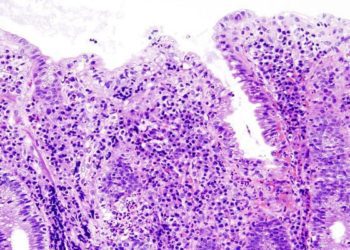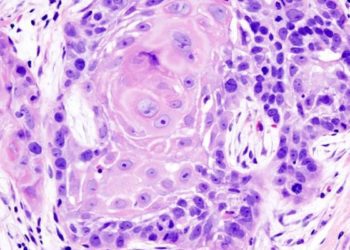Nexiguran ziclumeran reduces serum TTR levels in transthyretin amyloid cardiomyopathy
1. In this phase one clinical trial, among patients with transthyretin amyloid cardiomyopathy (ATTR-CM), it was found that nexiguran ziclumeran (nex-z), a CRISPR-Cas9 therapy that targets TTR, is associated with significant and sustained reductions in serum transthyretin (TTR) levels.
2. Nex-z was also associated with evidence of disease stabilization based on NT-proBNP and troponin levels, six-minute walking distance, imaging measurements of cardiac remodeling, and cardiopulmonary exercise testing.
Evidence Rating Level: 1 (Excellent)
Study Rundown: ATTR-CM is an infiltrative cardiomyopathy characterized by a progressive decline in cardiac function which is accompanied by deterioration in quality of life, heart failure, frequent hospitalization, and ultimately death. Current therapies focus on stabilization of the tetrameric form of TTR or inhibition of TTR synthesis, but these therapies require lifelong administration, adding to the overall disease burden, and patients often remain at risk for cardiac events or death. Nex-z is a one-time CRISPR-Cas9 therapy that has previously been found to produce a marked decrease in serum TTR levels in patients with ATTR amyloidosis with polyneuropathy. The present trial assessed the safety of nex-z and its effects on TTR levels, functional capacity, quality of life, cardiac imaging findings, and biomarkers of disease progression in patients with ATTR-CM. The administration of a single dose of nex-z resulted in significant reductions in serum TTR levels, accompanied by evidence of disease stabilization. Adverse events related to treatment included infusion-related reactions and transient elevations in AST levels, both of which were predominantly mild and self-limiting. Limitations of the study included the lack of a control group, a small sample size, and the fact that patients received other heart failure therapies during the trial, which could have affected some of the secondary outcomes. Nevertheless, the pattern of biomarker and functional response observed in this study is consistent with modification of the natural history of ATTR-CM and lays the groundwork for future studies to directly assess the clinical efficacy of nex-z.
Click to read the study in NEJM
In-Depth [ randomized controlled trial]: This phase single-group, open-label trial assessed the safety of nex-z and its effects on TTR levels, functional capacity, quality of life, cardiac imaging, and biomarkers of disease progression. Patients 18 to 90 years of age with a diagnosis of ATTR-CM, at least one previous hospitalization for heart failure or clinical evidence of heart failure, an NT-proBNP level > 600 pg per mL, and a New York Heart Association (NYHA) heart failure class of I, II, or III were included. The primary outcomes were serum TTR level, as a measure of pharmacodynamic activity, and the types and incidence of adverse events. Secondary outcomes included changes in NT-proBNP and troponin levels, NYHA class, quality of life based on the Kansas City Cardiomyopathy Quationnaire (KCCQ), measurements of cardiac remodeling on imaging, and functional capacity as measured via six-minute walk distance and cardiopulmonary-exercise testing. A total of 36 patients were enrolled in the study. The mean percent change in serum TTR levels was -89% (95% Confidence Interval [CI], -92 to -87) at 28 days and -90% (95% CI, -93 to -87) at 12 months. Concerning secondary outcomes, the mean factor change from baseline was 1.02 (95% CI, 0.88 to 1.17) for NT-proBNP and 0.95 (95% CI, 0.89 to 1.01) for troponin at 12 months. The median change in the six-minute walk distance was an increase of 5 m (interquartile range [IQR], -33 to 49), and the median change in KCCQ score was eight points (IQR, -0.5 to 15) at 12 months. Measurements of cardiac remodeling at 12 months with echocardiography or cardiac magnetic resonance imaging similarly showed a pattern of stability. The safety of nex-z was also assessed; adverse events related to nex-z included infusion-related reactions, observed in 14% of patients, and increased AST levels, observed in 6% of patients. The most frequent symptoms associated with infusion-related reactions were pyrexia, headache, hypotension, and back pain. In summary, among patients with ATTR-CM, nex-z was found to be safe and resulted in significant reductions in serum TTR levels accompanied by evidence of disease stabilization.
Image: PD
©2025 2 Minute Medicine, Inc. All rights reserved. No works may be reproduced without expressed written consent from 2 Minute Medicine, Inc. Inquire about licensing here. No article should be construed as medical advice and is not intended as such by the authors or by 2 Minute Medicine, Inc.







